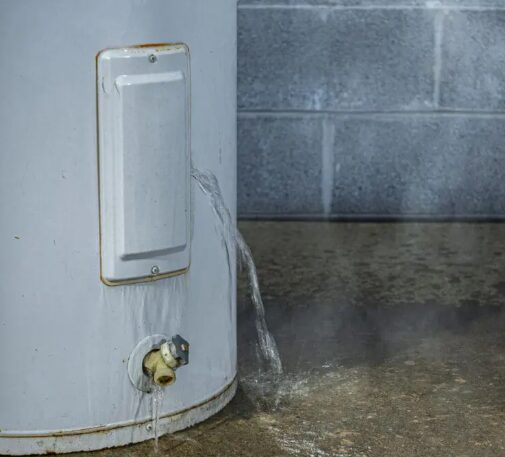
A leaking water heater is more than just an inconvenience – it can cause serious damage to your home and increase your utility bills. If you’ve noticed water pooling around your unit, it’s important to diagnose and address the issue as soon as possible. In this post, we’ll explore the common reasons why water heaters leak and what you can do about it.
Loose or Faulty Drain Valve
The drain valve, located at the boom of the heater, allows you to flush out sediment build up. Over time, this valve may become loose, worn out, or damaged, leading to leaks.
Excessive Pressure Build-Up
Water heaters are designed to handle a specific amount of pressure. If the pressure inside the tank exceeds safe levels, water may be forced out through the temperature and pressure relief (T & P) valve.
Causes of pressure build-up:
- A faulty thermostat causing the water to overheat
- A malfunctioning pressure relief valve
- High water pressure from your main supply
Corrosion and Rust
Over time, water heaters can develop rust and corrosion, particularly if the anode rod has deteriorated. Once rust eats through the tank, leaks become inevitable.
Sediment Buildup
Mineral deposits from hard water accumulate at the bottom of the tank, causing overheating and deterioration of the metal. This can lead to cracks and leaks.
Worn-Out or Faulty Inlet/Outlet Connections
Leaks can also occur at the points where hot and cold-water pipes connect to the heater. These connections can loosen over time du e to thermal expansion and contraction.
Internal Tank Cracks
If your water heater is old (typically over 8-12 years), the inner tank may have developed cracks due to age and wear. Once a tank cracks, repairs are not viable option.
Malfunctioning Temperature & Pressure Relief Valve
The T&P valve is a critical safety feature that releases excess pressure from the tank. If the valve is faulty or installed incorrectly, it can cause water to leak.
Call Ottagan Plumbing
If you experience any of these problems, give Ottagan Plumbing a call. A leaking water heater can be very stressful. Small leaks can quickly lead to bigger issues. It is best to fix it before it turns into a bigger issue and your water heater goes down, which will lead to no hot water.
Preventing Future Leaks
- Flush your water heater annually to prevent sediment buildup.
- Check the anode rod every few years and replace it if needed.
- Inspect connections and fittings regularly.
- Keep the thermostat set at a safe level to avoid overheating.
- Install a drip pan under the heater to catch minor leaks before they cause damage.
Final Thoughts
A leaking water heater should never be ignored. Identifying the source of the leak early can save you from costly repairs and water damage. Whether it’s a minor fix or a sign that you need a replacement, taking action promptly will keep your home safe and your hot water flowing smoothy.

Leave a Reply